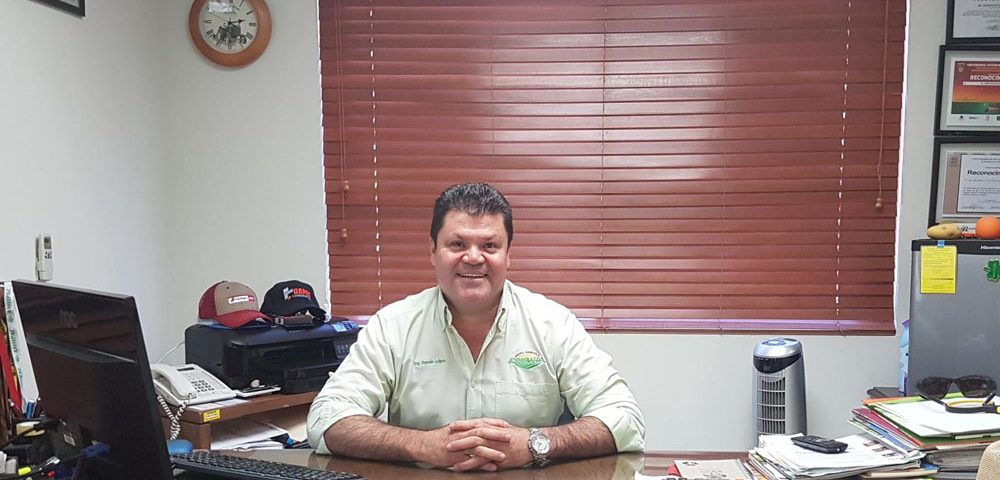Interview Ramón López Espinoza – Director, Grupo Agrícola Esmeralda

Ramón Antonio López Espinoza is originally from Los Mochis Sinaloa, is an agronomist specializing in plant protection, he also has a master’s degree in management with a specialization in international trade and is currently Director of Grupo Agrícola Esmeralda.
1. Could you tell us how your interest in agriculture was born?
I was born in a 100% agricultural city, where my family already cultivated the land owned by my grandfather in the valley of El Fuerte, and that’s where my vocation to this noble activity was born.
2. How did Agricola Esmeralda begin?
During the pass of the years and due to the evolution and needs of the company in the matter of production, transport and commercialization, it was formally consolidated in 2000 as Grupo Agrícola Esmeralda SPR de RL; family business.
3. What do you consider is the current position of the horticulture in Sinaloa with respect to the rest of the country?
I believe that the horticulture in Sinaloa has grown exponentially in the last 5 years, especially in protected agriculture, differentiating us from the others by its cutting-edge technology and the integration of the industry to position ourselves in the world as the state with the largest horticultural production, thanks to the certifications with agencies of the country, which comply with the international schemes in matters of food security.
4. What do you consider to be the main challenges that producers in Sinaloa are going through?
Food safety is undoubtedly one of the great challenges; Certification schemes are becoming more rigorous and customers are becoming more informed and more demanding, in this sense we as producers have to make conscious to achieve total certification.
5. What are the areas of opportunity on which agricultural companies in Sinaloa should focus?
a) Comply with the certification processes and standards, the management of different crops in a bio-rational manner, specialization and diversification of different crops, have industry schemes in the transformation of the products produced in Sinaloa due to lack of market or markets saturated as a lot of good quality products are wasted.
b) That the governmental institutions support with logistical means to look for schemes of commercialization in other continents.
c) Search more schemes of agriculture by contract to have more security in the commercialization of our products.
6. What actions on Social Responsibility does the company implement?
a) The prohibition of child labor
b) The individualized payment to workers in the field
c) Coordination with public institutions such as the food bank; DIF, ISEA (Sinaloense institute for the education of adults)
d) Incentive – Productivity
e) We have our own transports to meet all the requirements according to the the Eleven Rivers Certification Scheme, for a safe transportation of our workers in the field.
f) Prevention and health promotion
g) Care for the environment
7. How start the relationship with Eleven Rivers?
In 2011 we were called to a meeting to present the certification scheme project, which we thought was a very complete scheme that we accepted and since then we have been working together.
8. Could you tell me what aspects that Eleven Rivers reviews in your farm do you consider more relevant?
The aspect of social responsibility, which make it an inclusive scheme, the proper management of pesticides in the prevention of pests and diseases, care for the environment, the quality of all processes.
9. How has the company benefited from working with Eleven Rivers?
Eleven Rivers, has been for us an organization that since its inception has been fully concerned and involved in the processes, and that has led us to see a change very positive within the organization in the level of systematization of processes; so thanks to the Eleven Rivers scheme we have obtained greater reliability with our main clients.
10. Something else you want to add.
Make a call to all Sinaloa growers and productive sectors of our state to consolidate more and more to achieve a joint job and in this way reach more markets, making our activity more profitable.


